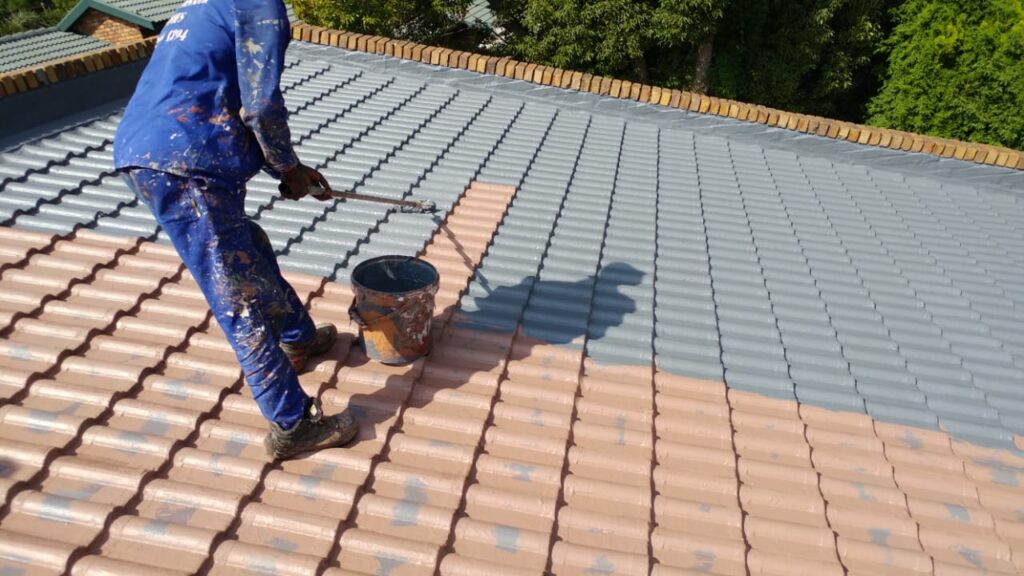Tiled roofs are a popular choice for many homeowners due to their durability, aesthetic appeal, and ability to handle various weather conditions. However, one major concern with tiled roofs is their susceptibility to water damage. Without proper waterproofing, water can seep through the tiles, leading to leaks, mold growth, and structural issues. In this article, we will explore different waterproofing solutions tailored for tiled roofs to help homeowners protect their investment and ensure their roofs remain in excellent condition for years to come.

What is Waterproofing?
Waterproofing is the process of making a structure or material resistant to the infiltration of water. When it comes to tiled roofs, waterproofing involves creating a barrier that prevents water from seeping through the tiles and reaching the underlying structure. It is crucial to apply waterproofing solutions to tiled roofs to avoid potential water damage and maintain a watertight roofing system.
Common Waterproofing Solutions for Tiled Roofs
-
Tile Sealers: Applying a tile sealer is one of the most common methods to waterproof tiled roofs. These sealers, available in liquid form, penetrate the porous surface of the tiles, creating a protective layer. The sealer repels water and prevents it from seeping through the tiles. It is important to note that the sealer needs to be reapplied periodically to maintain its effectiveness.
-
Roof Coatings: Roof coatings provide an additional layer of protection by covering the entire roof surface. These coatings create a seamless, waterproof barrier that extends the lifespan of the tiles and prevents water damage. Roof coatings are available in different varieties, including acrylic, silicone, and polyurethane, each with its own advantages and suitability for specific roof types.
-
Cement-based Waterproofing Membranes: Cement-based waterproofing membranes are ideal for tiled roofs as they offer both waterproofing and crack bridging capabilities. These membranes are applied as a liquid that cures and forms a flexible, durable coating. They create a seamless and waterproof barrier that prevents leaks and protects the underlying structure from water damage.
-
Liquid Rubber Waterproofing: Liquid rubber is a popular waterproofing solution due to its ease of application and versatility. It forms a seamless and fully adhered membrane that gives excellent waterproofing qualities to tiled roofs. Liquid rubber is also UV resistant, making it suitable for exposed roofs, and can withstand extreme weather conditions.
Benefits of Waterproofing Tiled Roofs
Proper waterproofing of tiled roofs offers numerous benefits, including:
-
Prevention of Leaks: Waterproofing solutions create a barrier that prevents water from seeping through the tiles and causing leaks. This protects the interior of the building from water damage and ensures a dry and comfortable living space.
-
Protection against Mold and Mildew: Water damage can lead to the growth of mold and mildew, which can be harmful to both the structure and the health of the occupants. Waterproofing solutions help to inhibit the growth of mold and maintain a healthy living environment.
-
Increased Roof Lifespan: Waterproofing solutions extend the lifespan of tiled roofs by protecting the tiles from water damage, reducing the need for frequent Repairs or replacements. This helps to save costs in the long run and preserve the structural integrity of the roof.
-
Improved Energy Efficiency: Waterproofing solutions can also contribute to improved energy efficiency. By preventing water from seeping through the roof, they help to maintain the insulation properties of the roof, reducing heat loss during colder seasons and minimizing the use of heating systems.
FAQs on Waterproofing Tiled Roofs
Q1: Can I apply waterproofing solutions to old tiled roofs?
A1: Yes, waterproofing solutions can be applied to both new and existing tiled roofs. However, it is recommended to assess the condition of the tiles and repair any damaged or cracked ones before applying the waterproofing solution.
Q2: How often should I reapply the tile sealer?
A2: The frequency of reapplying the tile sealer depends on various factors such as the quality of the sealer, exposure to weather conditions, and foot traffic on the roof. As a general guideline, it is advisable to reseal tiled roofs every 2-5 years.
Q3: Can I apply the waterproofing solution myself or should I hire a professional?
A3: While some waterproofing solutions can be applied by homeowners, it is recommended to consult with a professional roofing Contractor to ensure the proper application and effectiveness of the chosen waterproofing solution.
Conclusion
Waterproofing solutions tailored for tiled roofs are essential to protect your home from water damage, prolong the lifespan of the roof, and maintain a healthy living environment. From tile sealers to cement-based membranes and liquid rubber coatings, there are various options available to suit different roof types and situations. By investing in proper waterproofing, homeowners can ensure their tiled roofs remain resilient against water infiltration and continue to provide long-lasting beauty and protection.
